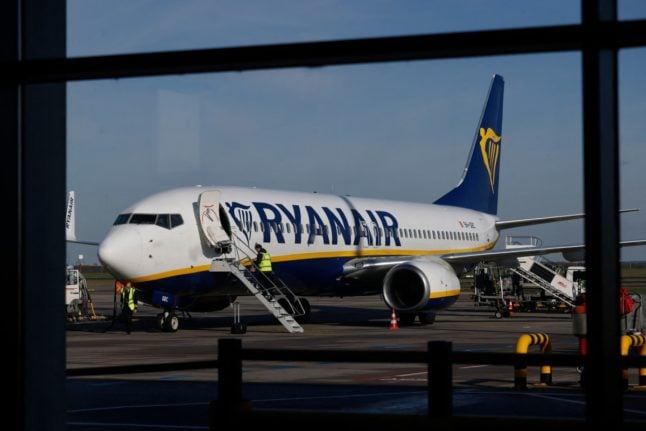In a press release published on Wednesday, Ryanair announced that 300 of their flights had been cancelled due to a planned strike by French air traffic controllers (ATC).
“Even though it’s French ATC that are striking, most disrupted passengers are not flying to/from France but overfly French airspace en route to their destination (e.g., UK – Greece, Spain, Italy),” the company said.
According to Ryanair estimates, 50,000 passengers would be affected in some way.
The main union participating in the strike announced on Wednesday morning that it had reached a deal with management and would be calling off industrial action, but the announcement came too late and many flights had already been cancelled.
As a result, significant delays and widespread cancellations were still expected on Thursday.
READ MORE: ‘75% of flights cancelled’: Which French airports will be worst affected by Thursday’s disruption?
Why are overflights affected?
The overflights pass through French airspace on their way to another country, and they make up a significant percentage of the flights handled by French air traffic controllers on a daily basis.
During strikes by French air traffic controllers, overflights are likely to be delayed or diverted as airlines seek alternatives routes that go around France, rather than over it. Often, there are also cancellations, as is the case for Ryanair.
Can I still get a refund due to a delay or cancellation of an overflight?
In terms of compensation, it makes little difference whether your flight is to/from France or simply over it, as EU compensation rules apply to all flights that either arrive at or depart from an airport in the EU/Schengen zone, or are operated by an EU-registered carrier.
Find full details on your rights and how to claim refunds HERE.
Are there plans to protect overflights?
Ryanair has been pushing for greater overflight protection for a long time, and they made several calls for change during the 2023 protests against pension reform when a number of air traffic control strikes were called.
READ MORE: Cancellations and compensation: How French strikes affect European flights
In their Wednesday memo, the company called again for the EU Commission to take action to protect overflights.
“French air traffic controllers are free to go on strike, that’s their right, but we should be cancelling French flights, not flights leaving Ireland, going to Italy, or flights from Germany to Spain or Scandinavia to Portugal.
“The European Commission under Ursula von der Leyen has failed for 5 years to take any action to protect overflights and the single market for air travel. We’re again calling on her to take action to protect overflights which will eliminate over 90 percent of these flight cancellations,” Ryanair’s CEO Michael O’Leary said in the memo.
The company has also released a petition to ‘‘Protect Overflights: Keep EU Skies Open’, which has over 2.1m signatures.



 Please whitelist us to continue reading.
Please whitelist us to continue reading.
Member comments